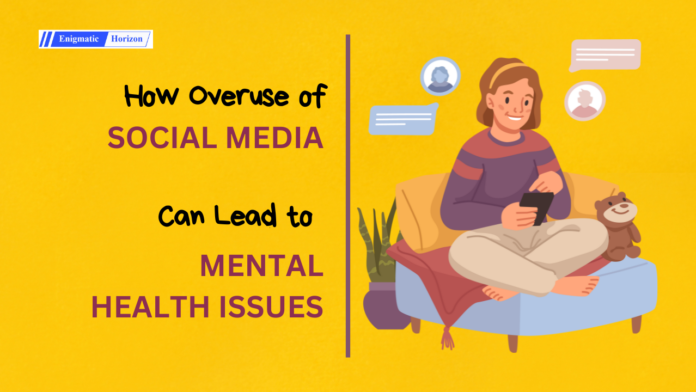Social media refers to different online platforms for interactive technologies that make it easy to create and share information, ideas, interests, and other forms of expression through virtual communities and networks. Popular Social Media Tools and Platforms are – Blogs, Vlogs, Facebook, Twitter, YouTube, Instagram, LinkedIn, etc.
The positive aspects of social media:
Social media enables one to communicate and stay up-to-date with family and friends around the world, especially if they reside far away, find new friends and communities, connect with other people with similar interests and ambitions, join or promote worthwhile causes, raise awareness on important issues, seek or offer emotional support during tough times, find an outlet for one’s creativity and self-expression, and discover sources of valuable information and learning.
Staying socially connected can ease stress, anxiety, and depression, boost self-worth, provide comfort and joy, prevent loneliness, and even add years to your life. On the other hand, lacking strong social connections can pose a serious risk to your mental health. While each has its benefits, it’s important to remember that social media can never be a replacement for real-world human connection. To get the hormones that make you feel happier, healthier, and more positive and make stress go away, you have to talk to other people in person. Ironically, for a technology that’s designed to bring people closer together, spending too much time engaging with social media can make you feel more lonely, and worsen mental health problems such as anxiety and depression.
If you are spending too much time on social media and still feeling sadness, dissatisfaction, frustration, or loneliness, then it may be time to re-examine your online habits and find a healthier balance. There is the potential for significant risks associated with its inappropriate use. Too much of everything is bad. The use of any social media site that crosses the line is dangerous.
Social media may promote negative experiences.
It can promote a feeling of inadequacy about one’s life or appearance. Even if you know that the images you’re viewing on social media are manipulated, they can still make you feel insecure about how you look or what’s going on in your own life. Again, fear of missing out (FOMO) has a big impact on people’s mental health. It gives them the feeling that others are having more fun or living better lives than they are. These feelings can make you feel bad about yourself, give you anxiety, and make you use social media even more, just like an addiction. A study at the University of Pennsylvania found that high usage of Facebook, Snapchat, and Instagram increases feelings of loneliness. On the contrary, the study found that reducing social media usage can make you feel less lonely and improve your overall well-being. People need face-to-face interaction to be mentally healthy. One dangerous aspect is that people get bullied and receive offensive comments on social media platforms. And teens and adolescents take that seriously. Besides, sharing endless selfies and all your thoughts on social media can create unhealthy self-centeredness and distance you from real-life connections.
In 2011, the American Academy of Pediatrics (AAP) proposed the existence of ‘Facebook depression’, which they defined as “depression that develops when pre-teens and teens spend a great deal of time on social media sites, such as Facebook, and then begin to exhibit classic symptoms of depression.”
Signs that social media is impacting one’s mental health:
Spending more time on social media than with real-world friends is the first sign. Even if someone is out with friends, he/she still feels the urge to constantly check social media. Another important sign is comparing yourself to others on social media in a negative way, which can lead to low self-esteem. Addiction to social media distracts pre-teens, teens, and adults from schoolwork. They feel pressure to post regular content about them, get comments or likes on posts, or respond quickly and enthusiastically to others’ posts. Also, having no time for reflection is a dangerous sign. Every spare moment is filled by engaging with social media, leaving them with little or no time for reflecting on who they are, what they think, or why they act the way they do – the things that allow you to grow as a person. Social media addiction leads to engaging in risky behaviors like playing dangerous pranks, posting embarrassing material, cyberbullying others, or accessing their phones while driving or in other unsafe situations to gain some likes, shares, or positive reactions on social media. They also suffer from sleep problems, as they keep checking on social media till late at night, in the morning, or even when they wake up in the night. The rays from phones and other devices can disrupt one’s sleep, which in turn can have a serious impact on one’s mental health. The worst symptoms are anxiety and depression. Rather than helping to lessen negative feelings and boost one’s mood, one feels more anxious, depressed, or lonely after using social media.
Adjusting social media use to improve mental health:
In the first step, one can reduce the time spent online for social media use. The second step is changing one’s focus from unnecessarily scrolling down Facebook, Instagram, etc., and killing time along with harming oneself, to finding specific information, checking on somebody who is ill, or sharing meaningful and important photos and information, etc. Step three is spending more time with offline friends. One has to set aside time each week to interact offline with friends and family. The next step is feeling and expressing gratitude for the important things in one’s life. It can be a welcome relief from the bitterness and dissatisfaction sometimes generated by social media.
